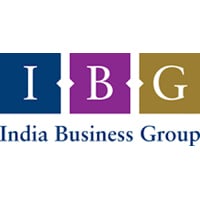
India Teams 2019

| DBS Bank








DBS Bank
| DBS Bank
DBS is a leading financial services group in Asia, with over 280 branches across 18 markets. Headquartered and listed in Singapore, DBS has a growing presence in the three key...
The legal team at DBS Bank India Limited (DBIL) consists of six lawyers that cater to the entire business and support segments across the bank. To elucidate further, team members are responsible for various departments, for example: Institutional Banking Group (IBG) and Global Transaction Services (GTS): Shubhneet Kaur and Abhinita Das are responsible for catering to the IBG which includes customers ranging from large corporates, multinationals, small and medium enterprises including LLPs, proprietorship and financial institutions. The team focuses over a plethora of legal aspects ranging from account opening, lending, security creation, recovery, dispute resolution and advising on priority sector requirements. GTS includes trade and cash management services and products such as supply chain financing, factoring through account receivable purchases, and advising on structured trade products and transactions. Treasury and Markets (T&M): Malvika Coomar is responsible for T&M. She negotiates “ISDA Master Agreement”, “Global Master Repo Agreement” and advises on various T&M products. Malvika works closely with the T&M legal team in Singapore. Digital Banking: Ganesh Khare focusses on the digital banking segment at DBIL. DBIL is at the forefront to reimagining banking and believes in harnessing technology and using digital journeys to create value for customers. Ganesh has been balancing legal and business requirements, to make this possible at DBIL. He has been responsible for negotiating and closure of various documentations with leading strategic partners in the industry.
Consumer Banking Group (CBG) & Real Estate: Abhishek Shah is responsible for the CBG and real estate segment. He is instrumental in streamlining documentation and providing advice on branch banking queries. Since DBIL is expanding its presence across India, Abhishek provides legal support the acquisition of branches. In addition to supervising the team, I am also involved in advising on strategical alliances, important and high value litigation matters,
review of new products and finalising documents for new products.
While there have been many initiatives, I would list a few key transactions: First instance being when DBS Bank Ltd (DBS) became the first major foreign bank in India to convert into a wholly owned subsidiary. This involved extensive documentation including finalising the scheme of amalgamation. The legal team ensured smooth transition with no impact to clients. The second instance was when DBS pioneered a whole new way of banking in India. That is when paperless banking became a reality. Ganesh has extensively assisted me during the launch of Digibank in 2016. DBS was the first bank to offer complete banking solutions on a mobile bringing together an entire suite of ground-breaking technology – from biometrics to artificial intelligence. Ganesh played a vital role to launch end-to-end digital process for personal loans where application, credit evaluation and analysis of supporting e-documents is performed real-time. The team played a crucial role in developing a mobile-only banking solution for the first time in India and have abolished the belief that wet signatures are required for opening accounts. Digibank is now a well-known brand of DBS. The third being when the legal team advised business and trade product teams on various pre-export finance deals and helped clients in improving their working capital cycle. This enabled clients to have better control on the trade flow and do off balance sheet financing for control on trade flows. A unique structured trade solution was created to enable the client (seller), to raise finance indirectly through an intermediary buyer by way of assignment of the buyer’s right under the sales and purchase contract and advance payment and supply agreement. Lastly, when Abhishek worked with the real estate team for executing leases for expanding physical presence of the bank across India.
The changes in the law pertaining to Aadhaar, privacy, money laundering have been challenging. The Insolvency and Bankruptcy Code 2016 has undergone many amendments through rules, regulations, court orders etc. Some changes defy the basic principles of banking creating uncertainty around rights of secured creditors. The superior ranking charge of a financial creditor has not been considered in some resolution plans thereby impacting the business. Recent amendments to IBC will help clarify these aspects. Payment Data Localization circular of RBI created uncertainty which has been clarified through FAQ route.
DBS is in the process of reimagining banking and has been digitising a substantial portion of banking. Data analytics, data management along with data privacy, will continue to be our focus at DBIL in the next 12 months. Balancing legal and the customer requirements is a continuing endeavour to provide the internal and external stakeholders, simplified and easy to read legal documents. Focus on… Mera Aadhaar Meri Pehchan, my Aadhaar my identity, has been through what we may call a tough identity challenge. From being optional, Aadhaar was made mandatory for all Indian residents and now again it is optional in most cases.
Aadhaar opened a host of opportunities for doing business and provided impetus to the “Digital India” campaign. Introduction of e-KYC through Aadhaar authentication permitted digital account-opening without any paper trail. Some banks grabbed this path-breaking opportunity of opening an account digitally as opposed to the traditional banking. Later, Aadhaar was made mandatory and all accounts were to be linked with Aadhaar.
Fears of data privacy and protection came to fore. Public interest litigation was filed, and the Supreme Court held Aadhaar to be constitutionally valid but could not be made mandatory except when receiving benefits/subsidies from the government. Latest amendments permit the use of Aadhaar voluntarily for opening bank account.
Understanding the legitimate fears of privacy, UIDAI introduced new methods like offline verification via QR code and xml files. Additional obligations around process of obtaining Aadhaar number, verification, authentication, storage of Aadhaar etc. were notified.
While Aadhaar is the future of the digital world, fine balance should be maintained for ensuring privacy and commercial use of personal information.